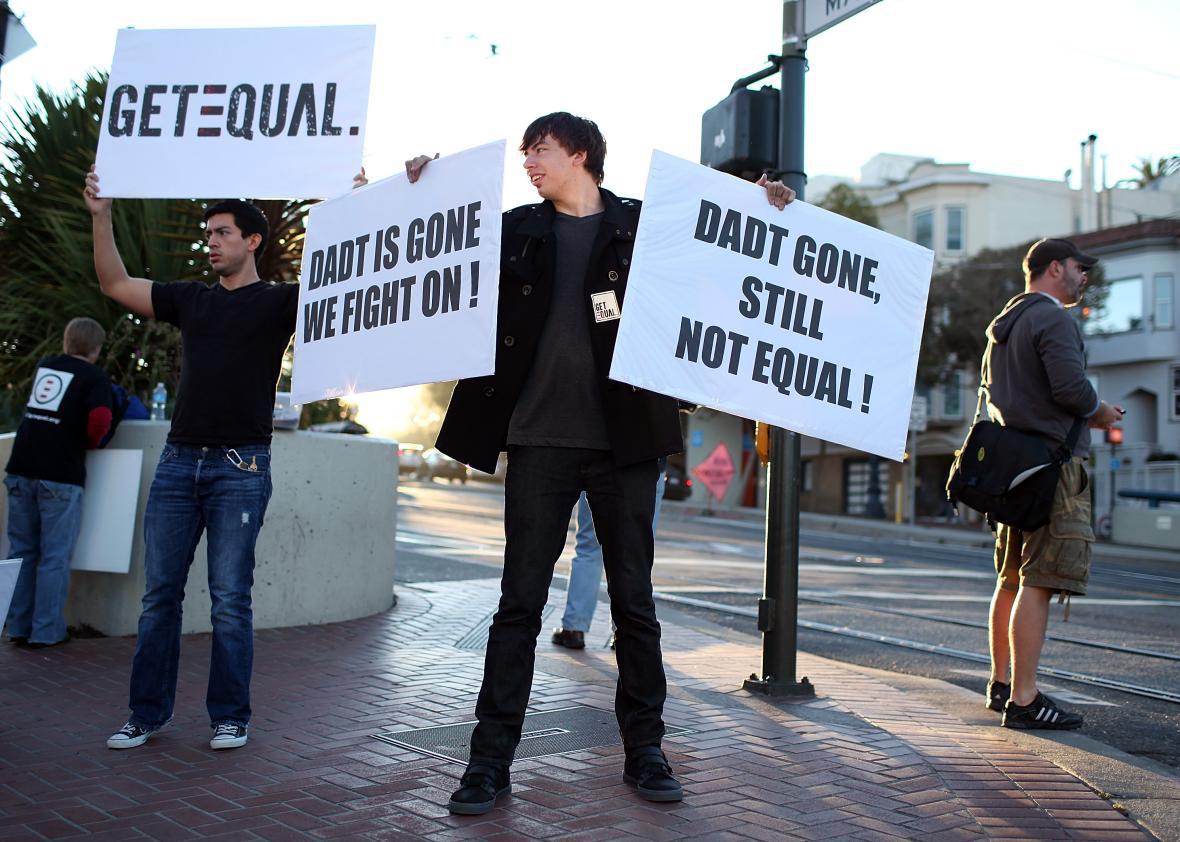In the Veteran’s Day issue of USA Today, four elected officials published an op-ed honoring gay, lesbian, and bisexual service members who were kicked out of the military because of their sexual orientation. As Sen. Kirsten Gillibrand, D-N.Y.; Rep. Mark Pocan, D-Wis.; Rep. Charles Rangel, D-N.Y.; and Sen. Brian Schatz, D-Hawaii, pointed out:
Since the Second World War, more than 100,000 service members are estimated to have been discharged from the military because of their sexual orientation, many with less-than-honorable discharges that have barred them from the benefits that they earned. Without a bill to protect these veterans, thousands of Americans who risked their lives to serve this country will continue to be denied access to the GI Bill and veterans’ health care, and they will have a more difficult time finding civilian employment.
In June, the politicians re-introduced a bill called the Restore Honor to Service Members Act, which would streamline the currently onerous task of establishing that a person was discharged purely because of their sexuality. The bill would also require that historians from each branch of the service review cases in order to “improve the historical record that the Defense Department can use to help gay, lesbian and bisexual veterans correct their records.”
That last requirement is key. It’s essential that we never forget that for many decades the U.S. military purged thousands of skilled troops from their ranks—including dozens of desperately needed Arabic translators in the period immediately following 9/11—capriciously damaged the lives of men and women who wished to serve their country, and then denied them access to the benefits of military service to which they were rightfully entitled.
Is it really this easy to right a historical wrong? As historian Justin Bengry wrote in response to calls for British authorities to issue state pardons to the 49,000 men convicted of “gross indecency” for consensual same-sex relations before the law was repealed in 2003, such pardons provide “too great an opportunity for the state to strategically forget and erase history rather than atone for the damage it has wrought on the lives of queer men.” But while it would be bad history to expunge the military’s anti-gay purges from the record, it’s a matter of simple justice to restore benefits to men and women whose personal lives, employment prospects, and future access to education and health care were ruined by a bigoted policy. Unfortunately, the legislation is given little chance of passing in the current Congress.
